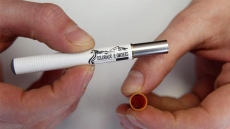VANCOUVER — Researchers at the University of British Columbia say a drug treatment that is key to the successful fight against HIV infection could leave patients prone to other diseases, such as syphilis.
The study says drugs used to treat HIV could affect how the body responds to syphilis, inadvertently contributing to an outbreak reported in several countries, primarily affecting men having sex with men.
Past research has speculated new, highly effective HIV treatments had encouraged more high-risk sexual behaviour.
But a release from the university says Michael Rekart, clinical professor in UBC's school of population and public health, noted huge gaps between cases of syphilis and other sexually transmitted infections such as gonorrhea.
The UBC team noticed that even though new syphilis cases are commonly observed in patients receiving the most effective HIV medication known as highly active antiretroviral therapy, or HAART, mathematical models ruled out risky sexual behaviour as a contributing factor in outbreaks.
Team member and University of Victoria microbiologist Caroline Cameron say the research suggests biological explanations for the effects of specific HIV drugs on the body's immune response to certain diseases.
The findings should be examined more closely, Rekart says, adding that it's vital for HIV patients to continue to take the most effective medications.
"HAART drugs are life-saving; syphilis is curable," he says. "HAART drugs bring people with HIV back to a normal state of immunity, they can have a normal life, they don't get most opportunistic infections such as tuberculosis."
Researchers say the next step is to carefully look at HIV drugs and determine if any within the highly active antiretroviral therapy could impair immunity.
The research was published Monday in the international journal, Sexually Transmitted Infections.




